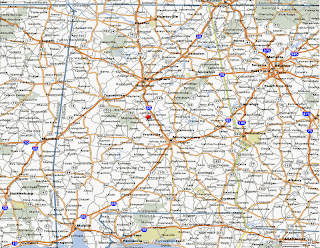
What I'm going to do is post a quote each week, with some commentary, from Henry David Thoreau's Walden. I'd been wanting to do this for some time but was waiting to visit Walden Pond before starting. But one programming note: While I'll try to post from Walden each week I'm not going to hold myself to having it occur on a particular day. I don't know if I'm disciplined enough for that.
Why spend this much time with Walden? Well, outside of the Bible, Walden is one of the most influential texts in my life (along with Thoreau's essay "Life Without Principle"). And by influential I mean not just intellectually. Thoreau has shaped how I approach my life, practically speaking. I'd like to share how that looks.
More, although Thoreau was skeptical of the Christianity he saw around him in Concord I've found a lot of his insights to be complementary with and supportive of my Christian walk. So, given the purposes of this blog I'll be filtering Walden through my Christian commitments.
If you've not read Walden, or did so a long time ago, some background as we begin with this inaugural post.
While living on Walden Pond Thoreau wrote about half of what would become Walden. (He mainly spent his time at Walden Pond writing A Week on the Concord and Merrimack Rivers.) After Thoreau left the pond the original 117 pages written at the pond expanded, over various drafts, and was eventually published in 1854, nine years after Thoreau had left Walden Pond.
As most know, a part of what Thoreau did at Walden Pond was to build his own house and grow his own food (or sell for food). A part of his "experiment" was to live simply and independently. (Though some critics like to point out that Thoreau often dined with the Emerson's or had his sister or mother do his laundry from time to time. Still, a good part of his two years on Walden Pond was pretty frugal, simple and solitary.) Most of the details of this part of the experience is recounted, at times down to the penny, in the first, and longest, chapter of Walden entitled "Economy." You can see a replica of Thoreau's cabin next to the parking lot at the state park. The picture above of the replica was taken by Jana during our recent family visit. (The other pictures used for this post were also taken by Jana.)
Why did Thoreau go to Walden Pond? What was he looking for? What was his experiment all about?
One answer, Thoreau's own, comes from chapter two "Where I Lived and What I Lived For":
I went to the woods because I wished to live deliberately, to front only the essential facts of life, and to see if I could not learn what it had to teach, and not, when I came to die, discover that I had not lived.You could say these words changed my life. I don't think that is too much hyperbole.
The key notion here, one that still guides me, is captured in the word deliberately. That's what I admire so much about Walden. I'm less interested in Thoreau's answers in Walden than in the stated goal of the enterprise: deliberation. Thinking hard about life, about what is most dear, eternal, truthful, virtuous, or beautiful. Few of us slow down to ponder such questions. Consequently, we find at the moment of death that we had not lived. So I like to ask, over and over, as Thoreau asked later in chapter two, "Why should we live with such hurry and waste of life?"
This makes me think of the familiar passage:
Philippians 4.8When I was young I hated this passage. It was used against us to preach against illicit and dirty thoughts. Not that this passage doesn't speak to those issues. But in light of Walden I prefer to think of this text as speaking about living deliberately. What is pure? (A question I ponder a great deal in my book Unclean.) What is true beauty? What should I admire? What should I applaud? What should I compliment? During his time at Walden Pond Thoreau wondered about this sort of stuff. And I think I should follow his example.
Finally, brothers and sisters, whatever is true, whatever is noble, whatever is right, whatever is pure, whatever is lovely, whatever is admirable—if anything is excellent or praiseworthy—think about such things.

I also think of this passage from the gospels:
Luke 14.27b-28aCounting the cost. Being a disciple of Jesus means being, like Thoreau, deliberate. We need to think hard about following Jesus. Too many Christians, I fear, are simply mindless about their faith and what it entails. Do we really comprehend what our baptism signifies?
[W]hoever does not carry their cross and follow me cannot be my disciple. Suppose one of you wants to build a tower. Won’t you first sit down and estimate the cost to see if you have enough money to complete it?
And so we've begun. Each week a thought from Walden Pond. With a bit of Christian theology thrown in.
May you live deliberately this coming week.
















